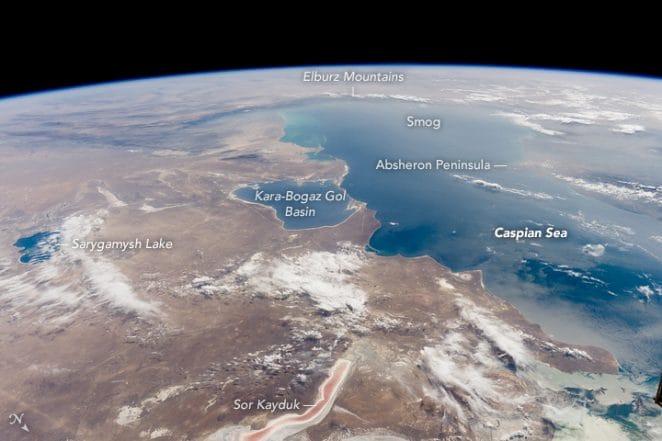A lake at the base of a mountain, surrounded by forests and hills, is one of the most beautiful spots on the planet. There are millions of lakes on every continent and in every sort of ecosystem, including mountains and deserts, plains and seaside areas, with freshwater lakes accounting for the vast majority of lakes.

The World’s Largest Lake
On the basis of its total surface area, the Caspian Sea is the largest lake on the planet, despite the fact that it is not freshwater. The Caspian Sea has the biggest surface area of any lake in the world, covering 143,000 square miles (371,000 km2) and being bordered by Russia, Kazakhstan, Azerbaijan, Iran and Turkmenistan.



Did You Know?
- The Caspian Sea is the world’s biggest inland body of water, accounting for 40 to 44 percent of the world’s total lacustrine waters.
- The Caspian Sea is the largest salt lake in the world, stretching 1,174 kilometres (729 miles) from north to south, with an average width of 326 kilometres (203 mi).
- The Caspian Sea is home to six sturgeon species: Russian, bastard, Persian, sterlet, starry, and beluga. The beluga is the world’s largest freshwater fish, with a world record of 1,571 kg (3,463 lb) and 7.2 m set in 1827 in the Volga estuary (23 ft 7 in).
- In 1844, the world’s first offshore wells and machine-drilled wells were drilled in Bibi-Heybat Bay near Baku, Azerbaijan, the Caspian Sea’s largest city.
- In 2018, the leaders of five countries—Russia, Iran, Azerbaijan, Kazakhstan, and Turkmenistan—officially signed a deal to settle the fate of the Caspian Sea. According to the agreement, the Caspian Sea now has a “unique legal status” as neither a sea nor a lake. All five countries will be allowed to patrol the body of water, and the natural resources discovered at the bottom of the Caspian Sea—vast quantities of oil and natural gas—will be split among them.
Sources:Wikipedia, Wikipedia, Live Science, Newsweek, Geology





GIPHY App Key not set. Please check settings